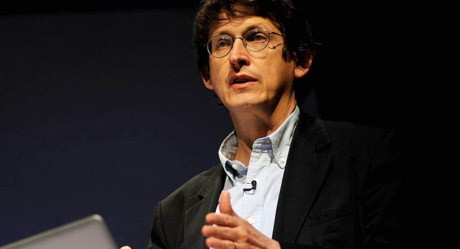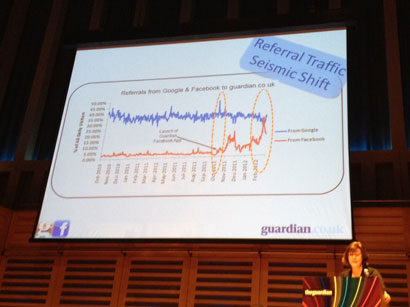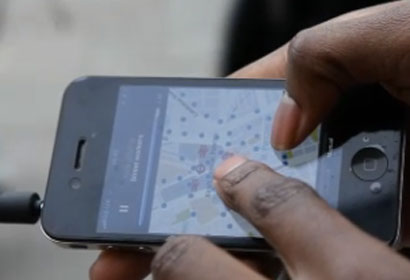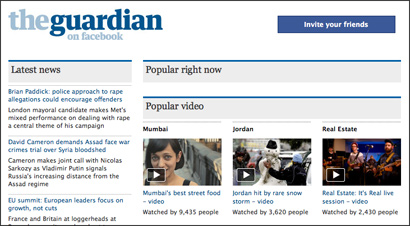Newspaper publishers need to “keep looking outwards” and make changes – even the titles that are the most digitally advanced – the Guardian’s digital development editor told editors at the World News Summit in Paris today.
Asked at the conference whether jobs like hers – helping newsrooms find and implement new processes and tools – would still be needed once newspapers had migrated further towards digital, Joanna Geary replied:
I’d like to hope that in the future it’s something that every journalist would play a role in and would start to understand and have an interest and curiosity in how they connect with readers in meaningful ways.
I still think there is a need to be honest and open with ourselves that this is not a communication revolution that is going to slow down any time soon. If that means we have to have a role that is constantly looking outwards at how our readers are changing, I think there is always going to be a need for this.
She later added:
The Guardian has a very unique culture, specifically about embracing new ideas and understanding new platforms and seek opportunities from new tools. When you see journalists work closely with developers, what’s great is watching both sides learn what’s possible.
For anyone who’s working on internal change it’s so easy to become internal looking and focused on internal structures and politics. My own bit of advice would be to keep looking outwards.
Guardian network editor Clare Margetson said there were still some journalists who needed a hand getting to grips with digital.
When I was on the newsdesk 10 years ago it seemed like a very different place. One of our best reporters would sit smoking a pipe and would not touch a computer. He would call in his story. It seems a world away.
There are still some who need help and some for whom Facebook is still quite a scary thing to use, but it’s quite collaborative and you find the younger reporters on a bank of desks will help out the older ones.










